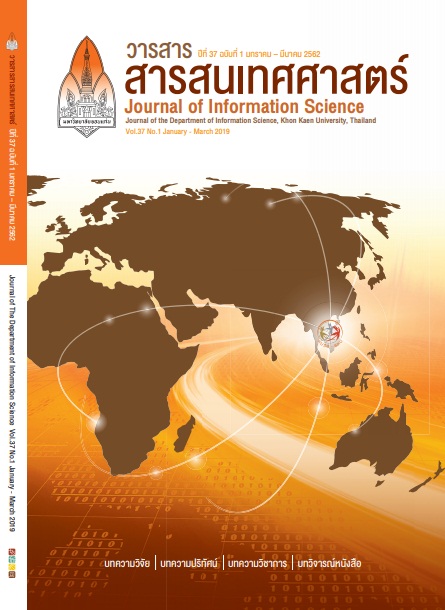Digital Literacy Competency for Personnel of the Faculty of Humanities and Social Sciences, Khon Kaen University
DOI:
https://doi.org/10.14456/jiskku.2020.22Keywords:
Digital literacy competency, Personnel competency, Working competency, Faculty of Humanities and Social Science, Khon Kaen UniversityAbstract
Purposes of the study: The main purposes of this study were to examine digital technology use and digital literacy of personnel of the Faculty of Humanities and Social Sciences and to examine factors related to their digital literacy.
Methodology: This research was a survey study. The foundation of the conceptual framework was formed from the analysis and the synthesis of concepts, theories, and literature related to digital literacy in the workplace. A questionnaire was distributed to 149 staff. The return rate was 89.26 percent, 133 out of 149. The data were analyzed for percentage, mean scores, and standard deviation.
Main Findings: The results revealed that (1) the digital technology equipment mostly used by the faculty members and the supporting staff included desktops and smart phones which were mainly used for working. In regards to the most frequently used program, it was found that the faculty mainly used Microsoft Word, while the supporting staff tended to use Social Media. (2) Overall, the faculty and the supporting staff’s digital literacy was at a high level. For each item, the two types of competency ranked at the highest level were awareness and digital citizen, and digital communication, and the item ranked at the lowest level was innovation creation. (3) The main factor related to the faculty’s and staff’s digital literacy was the university’s policy with the prescription of digital literacy as one element of the graduate’s identity. Finally, the pandemic resulted in higher level of participants’ active engagement in the digital society.
Applications of this study: Organizations can utilize the results of the study to improve and develop their staff’s digital literacy such as setting up group training workshops and providing sufficient IT equipment for each individual. Also, the results of the study can be guideline for strategic planning.








